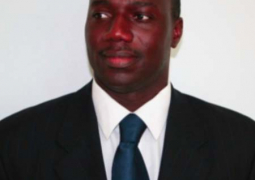The Special Criminal Court in Banjul yesterday convicted and sentenced one Lamin Ceesay, a native of Brikamaba village in the Central River Region, to death for the murder of one Modou Lamin Bayo.
Ceesay was sentenced to death by the high court after the court found him guilty of murder.
However, dissatisfied with the high court decision, the convict filed an appeal before a three-member panel of judges of the Gambia court of appeal, which dismissed the appeal based on the confessional statement of the appellant.
Still dissatisfied with the appeal court’s decision, the convict then filed another appeal at the Supreme Court of The Gambia, which in a ruling delivered in October 2012, set aside the conviction and death sentence imposed on him by the high court in Banjul and ordered a retrial.
Delivering judgment yesterday, Justice Emmanuel Nkea stated that the accused person was charged with the murder of one Modou Lamin Bayo.
He said the prosecution’s case was that on 14 June 2001, PW1 then attached to the Brikamaba Police Station received a complaint from one Kekuta Jarra that the deceased was lying under a mango tree, and it was later alleged by some un-named members of the public that it was the accused that had stabbed him with a knife.
The body of the deceased was later taken to the health centre at Brikamaba village, and then to the Bansang Hospital by the police where it was pronounced dead, the judge said of the case of the prosecution.
He added that the ensuing postmortem report was in evidence as an exhibit and photographs taken of the deceased person’s body were also in evidence as exhibits.
The accused was arrested and a knife was retrieved by the arresting officer from his pocket, and he was later taken to the Police Station at Brikamba where he was cautioned and charged, Justice Nkea went on
The cautionary and voluntary statements of the accused were received in evidence as exhibits. These statements were confessional in nature, he added.
Suffice to state that the Supreme Court of The Gambia had ordered a retrial in the matter, after it observed that the initial trial court failed to ascertained the mental fitness of the accused to stand trial, and upon the mental examination of he accused, he was found not to possess any psychiatric disorder, according to the judge.
“To discharge the burden and standard of proof as required by law, the prosecution must ensure that the facts as proved must be consistent with the guilt of the accused person, and there must be no room for the court to draw any inference that someone else could have perpetrated the murder,” Justice Nkea said.
He said there was overwhelming evidence that the later Momodou Lamin Bayo died on 14 June 2001, but also that he died from a stab wound on the neck.
“The uncontroverted evidence in the autopsy report was positive, direct, unequivocal and conclusive on this fact, and as there is no evidence whatsoever in rebuttal.
“ I reach the conclusion that the prosecution proved the death of Momodou Lamin Bayo with the certainty required by law,” he said.
He added that the autopsy report on the state of the deceased body was prepared outside the confessions and, therefore, amounted to evidence which was extraneous to the confessions in the statements, and upon the examination of the deceased body the pathologist noted his findings.
The above particulars of injuries correspond to injuries inflicted by a sharp knife on the neck as stated by the accused to show the confessions are true, but also that they are corroborated.
“I am satisfied that the deceased died as a result of an act of the accused person, and this I shall hold as a fact,” he stated.
In the instant case, the judge went on, the accused has insinuated that he stabbed the deceased after he found out that some of his belongings were stolen allegedly by the deceased.
To amount to an act in self-defence, he added, the convict must show that the action of the deceased placed him in the position of imminent danger either to his person or to his property.
“The amount of force used must be proportionate and reasonable given the value of the interest being protected, and the harm likely to be caused by use of force,” he said.
He adduced that the use of a knife in stabbing the deceased to death under the guise of protecting such interest was outrageously violent, and far in excess of the value of the property sought to be protected.
“When I consider that the deceased died from massive internal bleeding as a result of a stab wound with damage to a major blood vessel, then I am unable to see how the used of such force could be reasonable in the circumstances, and I hold that the force was in excess and not reasonable at all,” he stated.
“I hold that the prosecution had proven its case with the certainty required by the law against the accused. I found the accused guilty as charged”, the judge declared.



